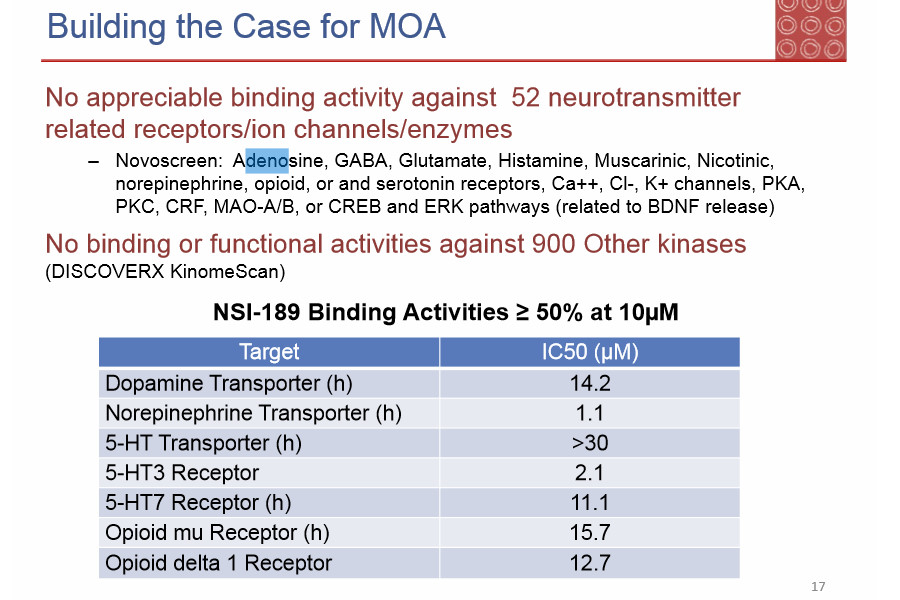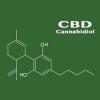Is there anywhere that states it’s actual affects on neurotransmitters. For example does it increase dopamine and if so in what mechanism? Which D receptors does it target? Does it influence serotonin and if so is it 5ht1, ht2,etc..?
Thanks
It was discussed and theorized about greatly in another thread:
https://www.longecit...f-action/page-2
There was some simulations done, which showed a few hypotethical affinities, but actual affinity-data from Neuralstem, the people making the drug, showed that these were off.
Either they're lying, or the drug really does have an UNRELATED effect on the brain, from the classical action on NE, DA and 5ht -receptors.
You can see the highest traditional affinities the drug has, down below. They are all very low, and wouldn't have much of an effect - the only one that MIGHT have an effect is the one on Norepinephrine reuptake. The side-effectsprofile is very different from Reboxetine and Atomoxetine though, so the effects on symptoms are probably not related to that.
Does anybody know what the (h) after the target means wenn it comes to the binding affinities?

If I was to make a vaguer of a guess, Neuralstem has probably kept testing it for affinities, double-checking the data, and have PROBABLY figured out the way it works by now - they don't want to say what it is just yet though, because they don't want competitors to crop up so quickly - if the drug fails Phase 3 testing, we'll probably find out how it works.
If not, it may be a long, long time until we find it out... h*ll, TYLENOL, aka Paracetamol/Acetaminophen, took us 70 years to figure out! Turns out it's a Selective Cannabinoid Reuptake Inhibitor - the first in its class.
(interestingly enough, Paracetamol is just like THC, derived from a plant - BIRCH to be accurate! So, as such, there's bound to be other plants that probably have Cannabinoid system interaction, perhaps even antagonistic action.)
Edited by Mind_Paralysis, 18 June 2018 - 07:34 PM.

























































